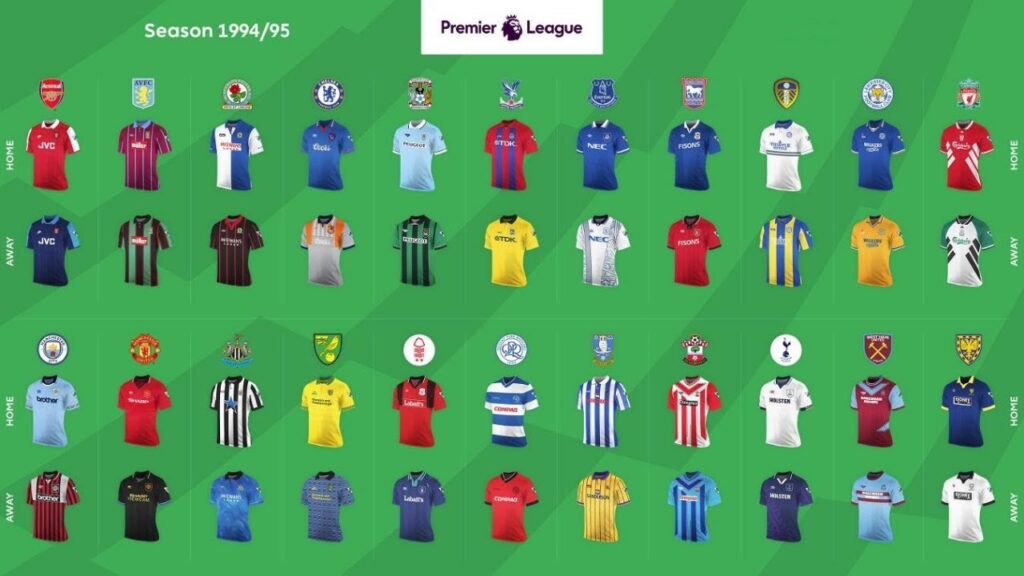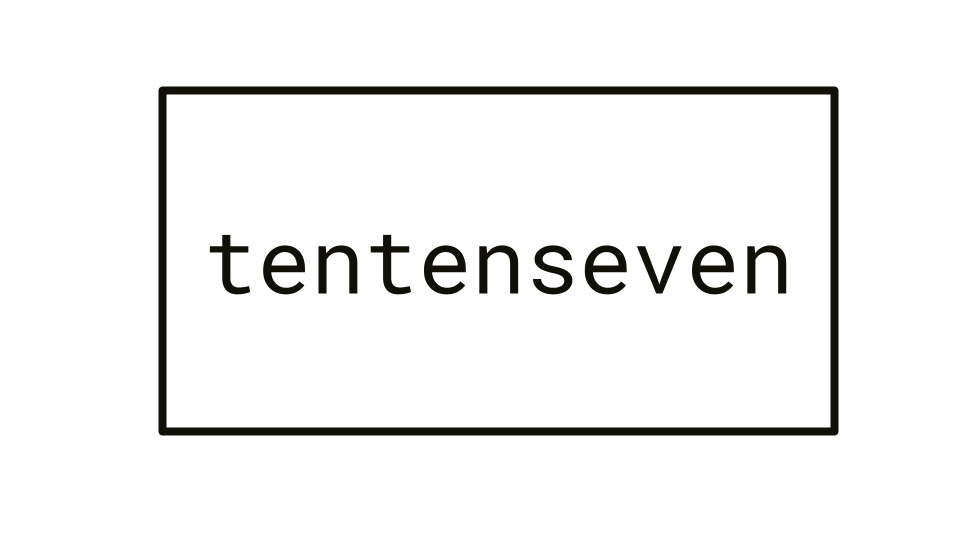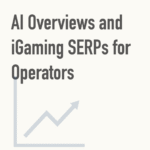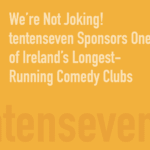It really was a crazy season, summed up by the Newcastle United fan who got a full-length tattoo of Andy Cole on his thigh, two days before the striker made a controversial move to Manchester United. He subsequently had it reworked into an image of Les Ferdinand. Blackburn Rovers won the title, exotic new signings like Jürgen Klinsmann lit up the league and Eric Cantona showed off his kung fu skills.
I caught an episode of The Premier League Years from that 1994/95 season recently and something else entirely caught my attention – the shirt sponsors. JVC emblazoned iconic Arsenal jerseys, Müller featured on Aston Villa’s Asics classic (although Müller missed a trick and should have sponsored corner flags), while beer brands such as Newcastle Brown Ale, McEwan’s Lager, Labatt’s, Holsten, Coors and Carlsberg featured prominently. Manchester City’s showcased the Brother brand, a shirt famously worn by Noel and Liam Gallagher. There are some sponsors who I’m still unsure what their company actually specialised in – Fisons at Ipswich Town, NEC at Everton and Elonex at Wimbledon. Thistle Hotels, Peugeot, TDK, Walkers Crisps, Norwich & Peterborough Building Society, Compaq, Sanderson, Dimplex, Sharp and Dagenham Motors completed the set.

And not one gambling sponsor.
The contrast to this season is stark. Eleven of the twenty clubs in the Premier League have a gambling logo on the front of their shirts, while every single one have a betting partner. According to research by Global Data, the cost of these sponsorships for this season alone to betting brands is over £100m.
However, clubs across the top flight in England have agreed to a voluntary ban on front-of-shirt sponsorships from 20026/27. This self-regulation will have significant implications for clubs, their finances, and marketing opportunities for the gambling industry.
Implications for Clubs
Gambling sponsorships have become a lucrative revenue stream in the Premier League, particularly for mid- and lower-level clubs. They also pay more than non-gambling firms. In 2023, Aston Villa’s CEO stated that gambling companies often outbid non-gambling companies significantly for mid-table teams. Indeed, it has been reported that newly promoted clubs can expect £5-6m from betting firms compared to £2.5-3m from non-betting sponsors. Clubs outside the “Big Six”, which haven’t relied on gambling sponsors in 15 years, will face the biggest financial hit.
It will also get complicated for clubs vying for promotion from the Championship, who have existing sponsorship deals in place with gambling firms. Contractual headaches could ensue should they have signed multi-year deals with gambling firms and then ascend to the top flight.
Since the ban’s announcement in 2023, the number of Premier League clubs with gambling shirt sponsors rose from eight to eleven. Clubs look to be locking in high-value, short-term deals and making hay while the sun shines.
Clubs will likely pivot to sectors like fintech, cryptocurrency and airlines, which are already gaining traction. However, the challenge will be to find partners willing to match gambling firms’ premiums.
Alternative Marketing Strategies for Gambling Firms
The ban only applies to front-of-shirt sponsors so clubs will no doubt exploit loopholes. Gambling brands could be shifted to sleeve sponsorships, training kits or pitchside LED boards, which remain permissible.
Gambling firms could invest the savings made from shirt sponsorships to targeted online advertising, influencer partnerships and platforms like TikTok, appealing to younger demographics.
Surrogate branding is another avenue explored by clubs who faced similar bans in leagues outside England. In the likes of Italy and Belgium, gambling companies use ‘infotainment’ brands (news sites tied to betting firms) to skirt rules. Sponsors in the UK could, for example, promote a lifestyle or stats app subtly linked to their betting platforms, maintaining brand presence without direct gambling ads.
Need some inspiration in investing your gambling company’s marketing budget without sponsoring Manchester United? Drop us a line at team@tentenseven.com





